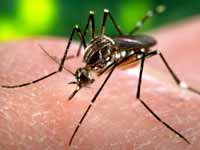THE Influenza A(H1N1) pandemic in Malaysia today snared another victim taking the toll to 72.
As of 9am today 280 patients out of 1,515 patients receiving treatment for influenza-like-illness (ILI) symptoms had been confirmed positive for H1N1.
According to the World Health Organisation (WHO), the H1N1 pandemic is still active whereby as of Aug 30 there were 246,221 cases with 2,958 deaths in 182 countries.
Malaysians are a complacent lot when it comes to dealing with Influenza A(H1N1) – this was what a World Health Organisation (WHO) report showed.
Health Minister Datuk Seri Liow Tiong Lai said the report, drafted by three health officials from WHO and which he received on Thursday, showed that many Malaysians did not take the disease seriously.
The report said Malaysians had a poor understanding and knowledge about how A(H1N1) spreads.
However, Liow noted that Malaysia had an efficient surveillance system to quickly detect those who suffered from the flu.
According to the report, Malaysia’s efficient and sensitive surveillance system was able to accurately record the number of deaths in the country.
Some other countries were still unable to confirm if patients had died of the disease, Liow said, adding that the death rate in Malaysia was still within limits set by WHO.
The officials were invited here to conduct a study in view of the rising number of A(H1N1) patients and fatality. The WHO officials were in Malaysia for a week to study the situation on the flu before they submitted their report to the ministry.
Swine flu or A(H1N1) spreading at 'unbelievable' rate: WHO
PARIS — Swine flu spreads four times faster than other viruses and 40 percent of the fatalities are young adults in good health, the world's top health official warned in an interview appearing Saturday.
"This virus travels at an unbelievable, almost unheard of speed," World Health Organisation Director General Margaret Chan told France's Le Monde daily in an interview.
"In six weeks it travels the same distance that other viruses take six months to cover," Chan said.
"Sixty percent of the deaths cover those who have underlying health problems," Chan said. "This means that 40 percent of the fatalities concern young adults -- in good health -- who die of a viral fever in five to seven days.
"This is the most worrying fact," she said, adding that "up to 30 percent of people in densely populated countries risked getting infected."
Chan's warning came a day after the WHO said the virus had overtaken others to become the most prevalent flu strain.
"Evidence from multiple outbreak sites demonstrates that the A(H1N1) pandemic virus has rapidly established itself and is now the dominant influenza strain in most parts of the world," the UN agency said in a statement.
"The pandemic will persist in the coming months as the virus continues to move through susceptible populations," it added.
Chan underlined that emergency and healthcare services in several countries had come under strain and stressed that resources allocated for cancer patients and those suffering from heart disease should not be diverted.
"One must not rob Peter to pay Paul," she said. "All governments must prepare for the worst."
She said the most important thing in the battle against the virus was "political leadership."
More than 2,180 people around the world have died from the virus since it emerged in April, according to the latest WHO figures.
Chan also said that it could be months before sufficient vaccine is available to combat the pandemic.
She put world production capacity at 900 million doses a year, for a global population of 6.8 billion people.
Even if this was an unprecedented effort, and authorities were speeding up procedures for getting vaccines to the market, there should be no question of compromises on their safety and effectiveness, Chan said.
Britain and France received their first batches of swine flu vaccine this week. Australia on Friday said a massive swine flu vaccination programme would start in October and Turkey hopes the first supplies of the vaccine will come by that time.
While 90 percent of severe and fatal cases occur in people aged above 65 in seasonal flu, most of those who die from swine flu are under the age of 50.
A "very severe form of disease" affecting the lungs and causing severe respiratory failure among young and healthy people was being reported, WHO said Friday, adding that highly specialised care was required.
Large numbers of such patients could therefore "overwhelm" intensive care units and disrupt the provision of care for other diseases, it warned.
In the southern hemisphere where the flu-prone winter season is tailing off, the WHO said cities in several countries had reported that nearly 15 percent of hospitalised cases required intensive care.
Earth becoming a disease hot spot : The warming earth is making us sick. Rising temperatures, frequent floods and prolonged droughts are ideal conditions for infectious diseases to spread. "Global warming is fuelling epidemics in areas which are unprepared. We're seeing the emergence of new diseases around the world. Old diseases are also coming back with a vengeance," Climate change has dramatically changing infection trends.
DENGUE DEATH CASES INCREASES BY 65% IN 2010
SAVE THE WORLD - STOP GLOBAL WARMING

Either You're With Me or You're Against Me in Stopping Global Warming!
Global Warming Articles
Let's Go Green & Save The World : Mentor Gemilang
The Truth Hurts - Truth is such a rare thing, it is delighted to tell it.

You can fool some of the people all of the time, and all of the people some of the time, but you can not fool all of the people all of the time.
Most truths are so naked that people feel sorry for them and cover them up, at least a little bit.
Truth always rests with the minority, and the minority is always stronger than the majority, because the minority is generally formed by those who really have an opinion, while the strength of a majority is illusory, formed by the gangs who have no opinion
Let's Go Green - Mentor Gemilang 1 - Visitors from 90 Countries
LATEST NEWS
Are u protected against Influenza A(H1N1)?
Repentance (At Taubah)
We can never be perfect since even prophets have at times made mistakes. Repentance means to abandon one's rebelliousness and arrogance before God and to stop deliberately disregarding His commandments without feeling any shame. Repentance also means to humbly hope for the mercy of God and to fear His judgment while doing the best one can to fulfill divine wishes within the limits of one's human weaknesses.


